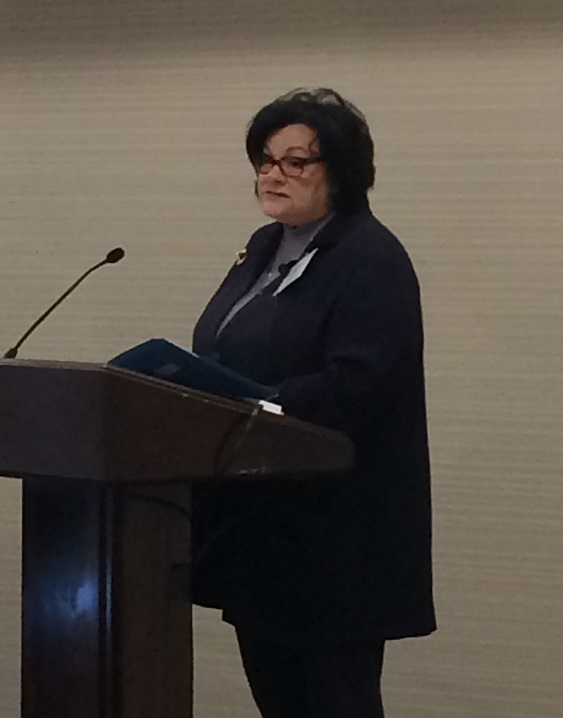QI Collaborative Convenes New Jersey Health Leaders to Discuss Medicaid Payment Reform
On October 9, 2015, the New Jersey Healthcare Quality Institute’s (NJHCQI) QI Collaborative hosted its Fourth Annual Medicaid Payment Reform Summit. The QI Collaborative, which is funded by The Nicholson Foundation, brought together stakeholders from across the State’s healthcare industry, government, and non-profit sectors to discuss strategies to improve New Jersey’s Medicaid program while reducing its costs.
As NJHCQI President and CEO Linda Schwimmer noted in her opening remarks, the purpose of the conference was to bring together “the innovators who want to drive change in our safety net healthcare system with the implementers who can make that change happen.”
A particular focus for many of the day’s speakers and panelists was the urgent need to strengthen and sustain New Jersey’s nascent Medicaid Accountable Care Organizations (ACOs). Recently, the State of New Jersey officially certified three community-based health care coalitions in Camden, Trenton, and Newark as Medicaid ACOs. Progress on building the ACO infrastructure in the state has been incremental, with legislation for a three-year Medicaid ACO Demonstration signed in 2011 and certification occurring almost four years later in July 2015.
Dr. Jeffrey Brenner, Executive Director of the Camden Coalition of Health Care Providers (which has received national acclaim for its pioneering work coordinating care for high users of Medicaid services), compared the growth of ACOs in New Jersey to “the turtle – slow and steady wins the race.” He noted that while the slow pace of change may seem frustrating, the continual efforts over the past few years was what was needed to build these multi-stakeholder organizations. “Similar entities that have succeeded nationally have been at this for 30 to 40 years,” said Brenner.
Representatives from New Jersey’s three Medicaid ACOs (the Camden Coalition of Health Care Providers, the Greater Healthy Newark ACO, and the Trenton Health Team) reported feeling a “new urgency” in their work now that the state certification process is complete. Yet, they also stressed that concerns about securing ongoing funding are hampering their efforts to move forward. Greg Paulson, Executive Director of the Trenton Health Team, posited, “ACOs shouldn’t be focused on sustaining the ACO, but on doing the work they’re designed to do.”
The Nicholson Foundation Chief Operating Officer, Joan Randell, echoed this sentiment in her presentation, and stressed the need for leaders within State government and Medicaid Managed Care Organizations (MMCOs) to “step up now” to increase the likelihood that the ACOs can succeed. The ACOs are seeking to enter into contracts with the MMCOs that can help secure their financial futures. “To not offer them contracts is to not offer them a chance of success,” said Randell.The conference was not solely focused on the ACOs, however, and other speakers explored a wide spectrum of approaches to strengthen New Jersey’s Medicaid delivery system. Dr. Jürgen Unützer of the University of Washington’s AIMS Center described how integrating behavioral health into primary care can help achieve the “Triple Aim” in health care. Other panels discussed innovative Medicaid payment programs used in large hospital systems outside of New Jersey, and ways to harness technological advances to better serve vulnerable populations.
Learn more:
Learn more about the QI Collaborative and NJHCQI
View Dr. Brenner's and Dr. Unützer's slideshows
View a photo gallery of pictures from the Summit
Media coverage:
HMA Weekly Roundup (see page 16)

